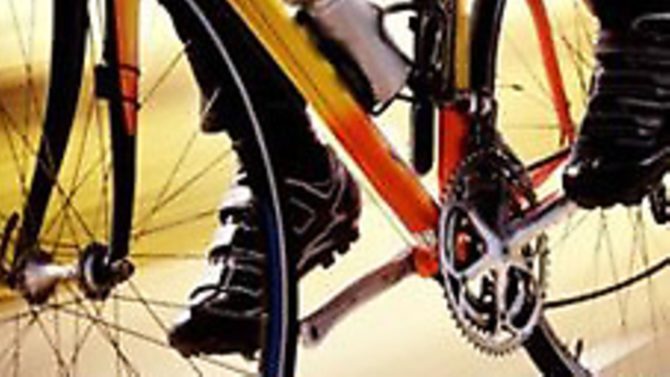The pound’s tour de force

Currency analyst Chris Saint looks at the pound’s steady climb against the euro

British hopes of glory in the Tour de France were dashed early on when both Chris Froome and Mark Cavendish had to retire. Instead an Italian, Vincenzo Nibali, stood on the podium in front of the Arc de Triomphe. He will collect the €450,000 prize, in euros. The only (small) consolation for the Brits is that the pound’s strong performance against the euro has significantly reduced the sterling value of the prize money by more than £30,000 since last year.
The pound has climbed almost 10% against the euro (and 15% versus the US dollar). The pound recently reached 21-month highs against the euro (€1.2696) and five-year highs versus the US dollar ($1.7191). The dollar has since strengthened slightly as the US economic rebound remains on course with consumer spending rising strongly.
Positive indicators have reinforced a belief that UK interest rates might rise sooner than in the US and euro zone. The prospect of higher interest rates (a higher return on holding a currency) tends to boost demand for a currency. The UK economy grew at its fastest level since 2007 in the first three months of 2014 and there is little indication that momentum is fading. A surge in house-building made construction the ‘yellow jersey’ sector in June, whilst manufacturing also expanded last month at its most rapid rate this year.
This free-wheeling recovery will be welcomed by the Bank of England (BoE) and policymakers could decide to apply the brakes, as they have previously indicated. The Bank will also be pleased that employment is surging ahead. However, sluggish wage growth and continued below-target inflation suggest the BoE will be reluctant to jeopardise the recovery and take the stabilisers away too soon.
Policymakers will need to be vigilant for signs that a stronger pound might derail a recent pick-up in manufacturing export orders. A strong pound makes our goods more expensive abroad. UK imports still hugely outweigh our exports and worries remain that the recovery could stall unless we can boost our share of world trade.
The European Central Bank cut interest rates in June to 0.15%; they have patched the tyres to counteract the risk of deflation (falling prices). Prices rose by just 0.5% in the year to June. Over in the US, there has been a marked improvement in employment, but the economy was punctured by a shockingly poor first-quarter performance and might be too fragile for the Federal Reserve to consider a rise in interest rates anytime soon.
Two simple ways to make your money go further
1. Better exchange rates
Most people use their high-street bank to convert currency, but those who shop around often find much better deals with specialist currency brokers where 2-3% savings are common and could make a difference of thousands of pounds on larger transactions.
2. Consider fixing the exchange rate and fix the cost
Exchange rates can move quickly and if you’re not ready to act the consequences can be costly. For example, delaying a €100,000 transfer by just two days in February could have cost you over £1,000. You can remove the risk of escalating costs by using a forward contract to fix the exchange rate in advance of when you need the currency. Of course the rate could then move in your favour, but it’s a risk you might not want to take.
Currency specialists offer this facility to fix the exchange rate on payments for up to two years ahead, for a flexible time period and for multiple payments.
You can find out more information in the Guide to Sending Money Abroad, published by Hargreaves Lansdown. For your free copy email HL.currency@HL.co.uk and quote FPN or call 0117 311 3257.
The views in this article are not a recommendation to deal. Currencies can fall as well as rise in value. Hargreaves Lansdown Currency Service is provided by Hargreaves Lansdown Stockbrokers Ltd which is authorised by the Financial Conduct Authority (FCA) as a Payment Institution under the Payment Services Regulations 2009. The Firm Reference number is 149970. You can look this up on the FCA register website.
Share to: Facebook Twitter LinkedIn Email


